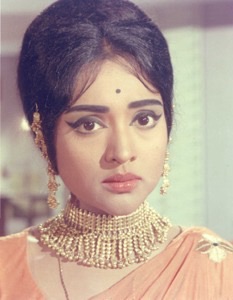Vyjayanthimala: The Eternal Queen of Grace and Screen
By Amit Kumar

On this day, the film world celebrates the birth anniversary of Vyjayanthimala, a name forever entwined with grace, talent, and versatility. Born on August 13, 1933, in Chennai, Vyjayanthimala’s journey from a prodigious dancer to an iconic actress remains a story of inspiration for generations.
Her entry into cinema was nothing short of serendipitous. As a gifted Bharata Natyam dancer from a young age, Vyjayanthimala first found acclaim on the stage. But it was at just 16 that she debuted on the silver screen in the Tamil film “Vaazhkai” (1949), quickly followed by forays into
Telugu and then Hindi cinema. With the Hindi film “Bahar” (1951), audiences nationwide discovered her charisma. It was “Nagin” (1954) that catapulted her to stardom and marked her as a force to be reckoned with.
One of her most unforgettable performances came in “Devdas” (1955), where her heartfelt portrayal of Chandramukhi won immense praise. Yet, in a striking display of integrity, she famously declined a Filmfare award in the supporting category, firmly believing her role to be on par with the leads. This spirit and sense of self-worth defined her choices on and off screen.
The following years saw Vyjayanthimala headline a series of blockbusters, “New Delhi,” “Naya Daur,” “Madhumati,” “Sadhna,” “Gunga Jumna,” and “Sangam.” Every character she played shimmered with depth and conviction. She was one of the few who could effortlessly transition from a sensitive courtesan to a spirited village belle or a sophisticated urban heroine, each time adding her own unique artistry.
Even as she broke box office records, Vyjayanthimala never abandoned her deep roots in dance.
Many credit her with introducing classical and semi-classical dance to mainstream Hindi cinema, adding a dimension that would influence generations of actors and filmmakers. Post-retirement, she championed Bharata Natyam on global stages and nurtured new talent.
Honored with the Padma Shri in 1968 and the Padma Vibhushan in 2024, her contributions as an artist and a parliamentarian stand tall in the annals of Indian culture. Today, as we remember Vyjayanthimala, it’s not just her luminous beauty or magnetic screen presence that endures, but her unwavering dedication to craft and her pioneering spirit. Her story is a gentle reminder that true legends are shaped by both talent and relentless passion
